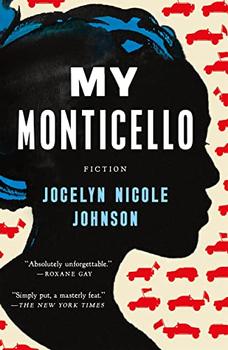Summary | Excerpt | Reading Guide | Reviews | Beyond the Book | Readalikes | Genres & Themes | Author Bio

Critics' Opinion:
Readers' Opinion:
First Published:
Oct 2021, 224 pages
Paperback:
Oct 2022, 224 pages
 Book Reviewed by:
Book Reviewed by:
Lisa Butts
Buy This Book
As they knocked and beat me to the ground, I couldn't help but think of a boy we all knew of—Tully Jones—whose body had been found some summer before, floating in the river, his head bashed in. When these men finish killing me, they'll drag my body down to the water too, I remember thinking. Please, don't hold me down under that murky water—I can't even swim! Why hadn't I learned to swim? And how would Mother even find my body? What if she thought I'd run off too, like my father had? Up close, the men reeked of peach brandy, the kind my schoolmates' fathers would nurse Friday nights under the sycamores. When those men finished doing what they did to me, I lay chest and cheek in the sand, playing dead, as they staggered back to their car, breathless. Even after they pulled off, sending up a sharp spray of gravel over my body, I kept on playing dead, as if I were sunk down under that endless water, my skin a wrinkled softness that would soon scrape away or be eaten by crawfish, by those microscopic creatures that troubled the silted bottom, until no one could tell or else it didn't matter what color I was.
The following fall, Mother insisted I attend a private boarding school, miles out of town. I wasn't to live in the dormitory with the others. Instead, I woke before sunrise, walked out to the highway, and caught a ride with a deacon from our church, an elderly man who smelled of polishing oil. He was the boarding school's custodian and the only other brown face to grace those halls besides mine. During the school day, we never looked at each other. I was always aware when he was in the same room, but I never let my eyes rest on his, not until we were far away from that place, and even then it was with a kind of shame.
The school's headmaster—the man who had agreed to my admittance—had gone "up north" for some number of years. His surname was the name of the school, and everyone knew it was his family's money that kept that dying boarding school from going under. At school assemblies, this headmaster would find excuses to parade me across the stage—my improbably strong elocution, the sharp crease in my uniform—defiant or oblivious to the contempt my visibility inspired. Even the dimmest boys were clever in their cruelty. Mother had been hired to cook and clean at the headmaster's residence in town, and for this, the others mocked her mercilessly. What could I do, it was true—my scholarship was her bowed back, her bleach-bitten hands. Enrolling me there must have been an act of faith or desperation, like pressing a message into a bottle and floating it onto turbulent waters.
Even so, I clung to my formal education, setting off at seventeen to a small all-Black college, then going far north for graduate school. The boys I'd grown up with mostly stayed rooted. They married girls from church, worked hard to scrape together a living or get ahead. Some were shipped off to Vietnam; a few marched in bigger towns, facing police dogs and fire hoses. I devoted my life to scholarly truth, spending the majority of my adult life here at this esteemed institution. After you were born, I purchased my own home, just a two-bedroom bungalow, but in a good neighborhood not far from campus. I can walk to work, and sometimes I do. Whenever I walk my mind wanders. Occasionally I worry that I've been self-indulgent in my research, somehow selfish in my secret fatherhood. Walking, I think the world is surely a better place now than it used to be for people of color. Aren't I myself living proof against my theories? Can't I be satisfied?
Excerpted from My Monticello by Steven Johnson. Copyright © 2021 by Steven Johnson. Excerpted by permission of Henry Holt and Company. All rights reserved. No part of this excerpt may be reproduced or reprinted without permission in writing from the publisher.





The House on Biscayne Bay
by Chanel Cleeton
As death stalks a gothic mansion in Miami, the lives of two women intertwine as the past and present collide.

The Flower Sisters
by Michelle Collins Anderson
From the new Fannie Flagg of the Ozarks, a richly-woven story of family, forgiveness, and reinvention.

The Funeral Cryer by Wenyan Lu
Debut novelist Wenyan Lu brings us this witty yet profound story about one woman's midlife reawakening in contemporary rural China.
Your guide toexceptional books
BookBrowse seeks out and recommends the best in contemporary fiction and nonfiction—books that not only engage and entertain but also deepen our understanding of ourselves and the world around us.